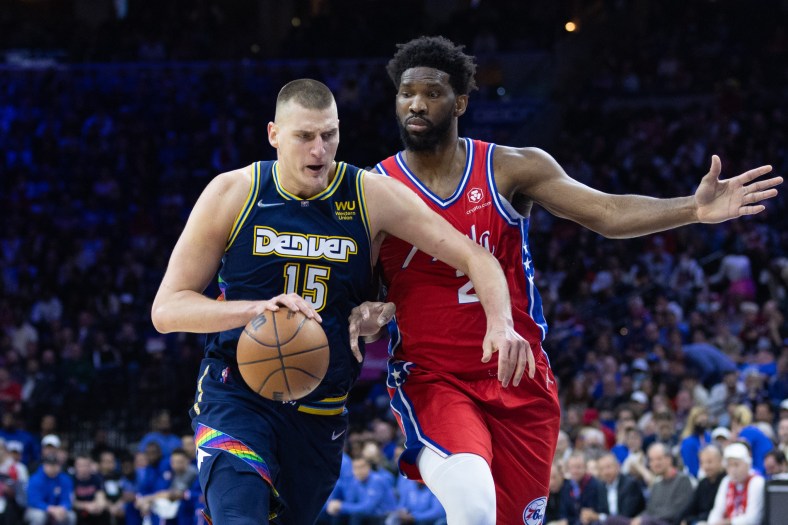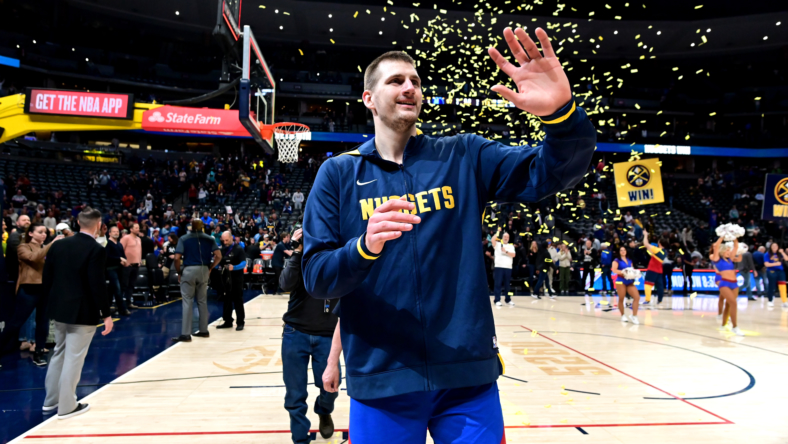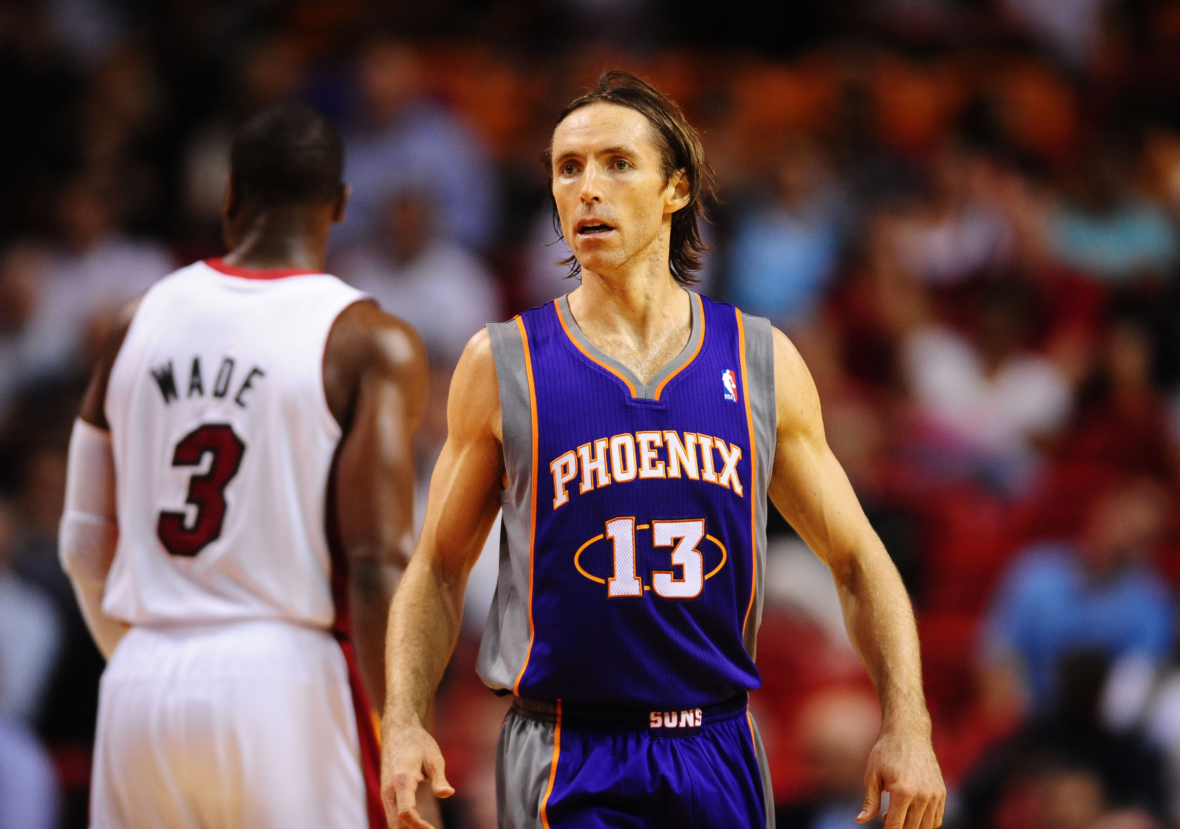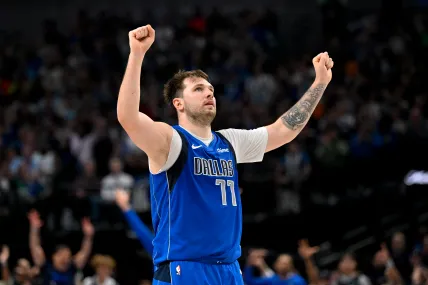
Kendrick Perkins and JJ Reddick, both former NBA players, nearly broke the Internet with their
debate this week over the role race and stat-padding plays into NBA MVP voting.
As with politics, the sports world created polar rifts, ignoring nuance and opting for binary viewpoints as if there are only two sides to the argument or any argument. Both Reddick and Perkins had insightful views on the long-debated credentials of MVP. Is it a team’s wins that matter most? What about points per game? The argument has split fans, the media, and former players.
The argument has been around for decades, especially since Steve Nash beat out Shaquille O’Neal in the 2005 MVP voting while his points per game average was not in the top 10, a metric commonly associated with MVP criteria. That metric was one of Reddick’s best burns on Perkins, calling out the former Boston Celtics center on cutting off his point-per-game leader criteria in 1990, the year after Magic Johnson won the award as the 15th leading scorer.
Related: NBA games today – Get watch times and odds for tonight’s matchups
Landing top 10 in points per game was one of the metrics Perkins stated should be used to judge MVP. On Tuesday’s First Take episode, Perkins claimed foreign, white players receive less scrutiny than their African-American counterparts for the award and for winning overall. Reddick responded with the following, “The implication — what you are implying, is that the white voters that vote in the NBA are racist. They favor white people. You just said that.” Perkins refuted Redick’s interpretation, saying, “I stated the facts!”
The internet distilled it down to Perkins relying on race-baiting to discredit past white MVP winners Nash (2005, 2006) and Dirk Nowitzki (2007) and current MVP favorite Nikola Jokic (2021, 2022). Perkins pointed out the overwhelming majority of white voters for the award as evidence of skewed favoritism towards whites, looking out for players who look like them. The NBA quickly responded, which was conveyed through First Take’s Molly Qerim, “I want to correct something here from yesterday’s show. When Kendrick Perkins said 80% of NBA voters for the MVP award are white, the NBA publicly announces the voters each year. After review, it is clear the panel is much more diverse than what was portrayed by Kendrick Perkins, and we wanted to make sure that we corrected that today.”
Qerim did not give a specific number or statistical breakdown of the current voting committee. Every year, the MVP award is decided by a panel of 101 sportswriters and broadcasters throughout North America. Each member of the voting panel casts a vote for first to fifth-place selections. Players must have played at least 70% of the league-wide average for team games to qualify.
Recently, the NBA has made attempts to make the voting team more diverse, adding more people of color and women to its voting board. Perkins is one of those voters. But the board is still majority white. If race factors into their decision is a question only they can answer.
Is Nikola Jokic worthy of three straight NBA MVP trophies?

But the impact of race on Jokic’s candidacy may be missing the point. Jokic has been a viable NBA MVP candidate all three years. This season might be his best individual season while helping the Denver Nuggets to the No. 1 seed in the Western Conference, averaging 24.3 points, 11.8 rebounds, and 10 assists. But looking back to the three straight years from 2005 -07 when Nash won the award predates the league’s attempt to diversify their voting group.
There is a strong case to believe there could have been a higher preference level in the mid-2000s when most voters were white males. It would make sense for a group of white voters to select a worthy candidate who fits most of the criteria and also happens to look like them. It’s not hard to fathom that if voting was 85 percent African-American, we might never see a white MVP, especially when the majority of the best players in the NBA are Black.
But back in the early 2000s, there was, and is, certainly a case that in the 2004-2005 O’Neal’s 22.9 ppg and 10.4 rebounds per game were more profound for the 59-23 Miami Heat (No. 1 in the Eastern Conference) than Steve Nash’s 16 ppg and 12 assists per game for the 62-20 Phoenix Suns (No. 1 in the Western Conference). O’Neal should have had more than just one MVP award, and 2005 might have been the best case for his biggest snub. That Nash had two in back-to-back years while not being a top-10 scorer seems egregious.
The 2006 Nash MVP felt more appropriate, as the Suns finished 54-28 and No. 2 in the West before losing in the Western Conference Finals — although, of course, the playoffs do not factor into NBA MVP voting.

However, Nowitzi’s 2007 NBA MVP award felt like it belonged to Kobe Bryant, as he dragged a terrible Lakers roster to the playoffs while leading the league in scoring at 31.6 ppg, 5.4 APG, and 5.7 RPG. Nowitzki did lead the loaded Dallas Mavericks to the league’s best record (67-15), but there was no question Bryant was the most crucial to their team. Nowitzki was announced for the award after the Mavericks were eliminated by the Golden State Warriors in a historic first-round playoff upset.
There also has been a narrative that European players are not held to a higher standard to win, which is simply false. What Reddick did not mention is the level of scrutiny Nowitzki faced after his favored Mavericks blew a 2-0 lead to lose four straight to the Miami Heat in the 2006 Finals. He
became the first-ever No. 1 seed to lose to an eighth seed in a seven-game series. The following season, the No. 2 Mavericks fell to the No. 7 New Orleans Hornets in five games in the first round.
The media, fellow NBA players, and fans thrashed Nowitzki, labeling him soft, a loser, and the antithesis of clutch. The Herculean effort he went through to reclaim his good name made the 2011 championship by Nowitzki’s Mavs all the sweeter. But his journey alone proves Perkins’ theory that white Euro’s are let off the hook.
In the modern era, Perkins might have more of a valid argument. Thus far, Jokic and Luka Dončić,
the league’s two best white Europeans and top five MVP candidates have been let off the hook
for not winning an NBA championship yet. Each has led their teams to the Western Conference Finals but has failed to win it all. Yet, surveying the many articles about who has the most to prove leading into the playoffs doesn’t have either of their names listed.
Perkins also accused Jokic of “stat-padding,” which is going after key metrics to improve averages and chances at records. If Jokic does this, and Perkins reiterated this, it does not make Jokic special or wrong. All players do it — even the greats. Just watch any game on any night, and you’ll catch someone, from an NBA MVP candidate to a 15th man, in for the first time in weeks, put up a shot, go for a rebound, or choose not to shoot and settle for a pass to increase their numbers. The difference is being a player where that’s part of their game, in the way Ricky Davis, Russell Westbrook, or Jerry Lucas were notorious for it.
The argument can be boiled down by points from both parties involved in the debate. Is Jokic deserving of his third MVP? Yes. Does he stat-pad? Yes. Does race influence some of those who vote for MVP? Yes. Were Nash and Nowitzki worthy of the award-worthy but perhaps not the best choice? Yes. But it’s hard to come to reasonable, measured responses to a dialogue manufactured for clicks and binary arguments.
Lee Escobedo covers the NBA for Sportsnaut. You can follow him on Twitter at @_leeescobedo
